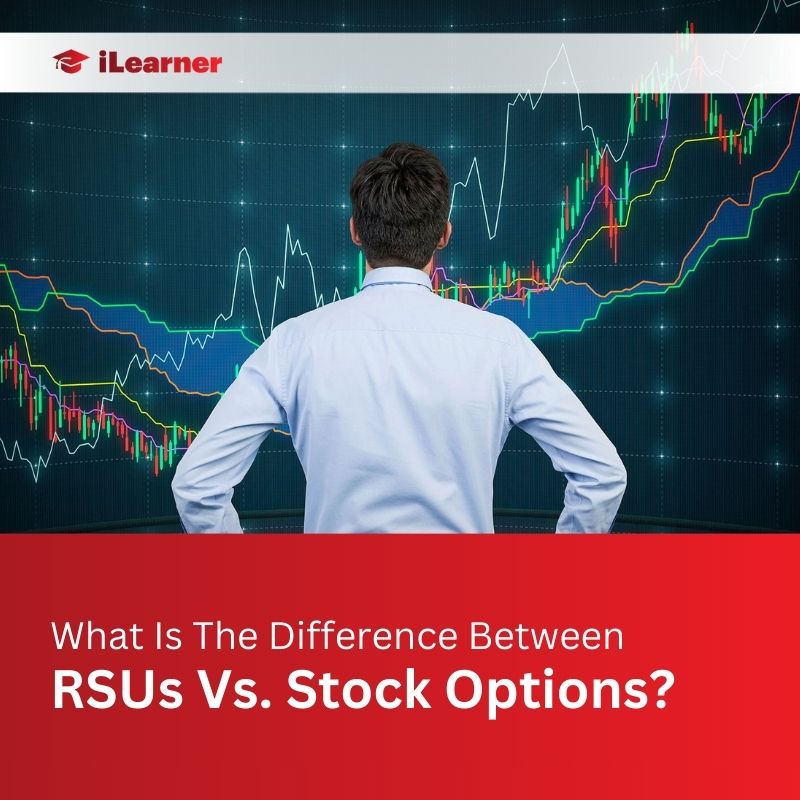In the ever-evolving realm of employment benefits, companies are increasingly turning to equity compensation to attract, retain, and motivate their workforce. Two prominent forms of equity instruments, Restricted Stock Units (RSUs) and Stock Options, play a pivotal role in this landscape.
This guide aims to provide an in-depth exploration of these equity tools, offering comprehensive insights for individuals and organizations navigating critical decisions.
Restricted Stock Units (RSUs)
Definition and Structure
Restricted Stock Units (RSUs) represent a form of equity compensation where employees are granted restricted ownership of a company’s stock. The ownership, however, is not immediate. Instead, it is subject to predetermined conditions set by the company, creating a nuanced incentive structure.
Vesting and Conditions
RSUs are typically subject to vesting schedules, which means employees must fulfill certain conditions before the stock becomes fully transferable. These conditions may include completing a specified tenure, achieving performance milestones, or reaching other predetermined targets. For instance, an employee might need to remain with the company for a minimum of three years before the RSUs can be fully transferred without any restrictions.
Cost Considerations
One notable feature of RSUs is that employees do not incur any cost to acquire them. Unlike Stock Options, where employees often need to purchase the stock at a predetermined price, RSUs are granted without any upfront payment.
Stock Options
Defining Stock Options
Stock Options, on the other hand, provide employees with the right to purchase company stock at a predetermined price, known as the strike or exercise price. The unique aspect of Stock Options is that they offer the potential for profit only if the stock price exceeds this specified level.
Value Tied to Performance
The value of Stock Options is intricately tied to the company’s stock performance. These options become valuable when the stock price rises above the predetermined level, creating an opportunity for employees to acquire shares at a potentially favorable price.
Financial Commitment
Unlike RSUs, Stock Options involve a financial commitment from the employees. To exercise their options and acquire the stock, employees need to pay the predetermined price per share. This financial commitment adds a layer of complexity and risk compared to the upfront cost-free nature of RSUs.
Key Distinctions Between RSUs and Stock Options
1. Valuation and Payment
- RSUs provide ownership of the company’s stock, and their value is determined by the stock’s market price.
- Stock Options gain value when the stock price surpasses a specific level.
- Stock Options involve an upfront purchase cost, whereas RSUs do not require any payment.
2. Tax Implications
- RSUs are taxable as soon as they vest, leaving employees with no discretion on the timing of the tax event.
- Stock Options offer flexibility, allowing employees to choose when to exercise the options, influencing the timing of tax events.
3. Financial Implications
- Stock Options expose employees to market fluctuations, potentially bringing gains when the market rises.
- RSUs provide a stable value, shielding individuals from market volatility.
Financial Implications and Considerations
Understanding the Risks and Rewards
The choice between RSUs and Stock Options involves a nuanced consideration of personal comfort with risks and rewards. Stock Options expose employees to market ups and downs, potentially resulting in higher gains but also higher risks. RSUs, on the other hand, offer stability by providing a set value, shielding individuals from the volatility of the market.
Integration into Financial Strategy
Effectively incorporating these equity plans into an overall financial strategy is crucial. Individuals need to evaluate how RSUs or Stock Options align with their broader financial goals, risk tolerance, and investment portfolio. A holistic approach ensures that equity compensation becomes an integral part of an individual’s financial plan rather than a standalone benefit.
Strategic Intersection of RSUs and Stock Options
Aligning with Company Goals
Beyond their differences, the strategic intersection of RSUs and Stock Options is crucial. RSUs, with their long-term vesting schedules, foster a sense of ownership and commitment among employees. This aligns them closely with the company’s broader success and encourages a focus on sustained performance.
Performance-Linked Incentives
Stock Options, with their performance-linked nature, offer employees a direct stake in the company’s success. As the stock price increases, so does the value of the options, providing a powerful incentive that aligns individual gains with company performance.
Balancing the Equation
Striking the right balance between RSUs and Stock Options can enhance the overall effectiveness of compensation plans. Companies need to carefully evaluate their objectives and employee demographics to tailor equity compensation strategies that resonate with their workforce.
Employee Considerations
Personal Financial Goals
The choice between RSUs and Stock Options often hinges on an individual’s financial goals and risk tolerance. If stability and a guaranteed value are priorities, RSUs may be more appealing. On the other hand, individuals comfortable with market fluctuations may be drawn to the potential gains offered by Stock Options.
Weighing Risks and Preferences
Employees must weigh the risks and rewards associated with each equity instrument against their personal preferences. An understanding of one’s risk tolerance, financial aspirations, and time horizon for investment can guide the decision-making process.
Employer Considerations
Motivation and Retention
For employers, designing equity plans requires a delicate balance to motivate, retain, and satisfy employees. RSUs, with their direct ownership structure, can instill a sense of loyalty and commitment among employees. Stock Options, with the promise of potential gains, serve as a powerful incentive, especially in dynamic industries.
Attracting Top Talent
Achieving the right balance in equity compensation is essential for attracting and retaining top talent. Startups may leverage Stock Options as a carrot to attract individuals with the promise of future gains. Established corporations may lean towards RSUs, offering stability and a direct connection to the company’s ownership.
Evolving Landscape of Equity Compensation
Tailoring Strategies to Growth Stage
As businesses evolve, so do equity compensation strategies. Startups, often characterized by high risk and potential for rapid growth, may lean towards Stock Options to attract talent with the allure of future gains. Established corporations, seeking stability and long-term commitment, may favor RSUs as a more secure form of equity.
Adapting to Industry Dynamics
Industry dynamics also play a role in shaping equity compensation strategies. In rapidly changing industries, where stock prices can be volatile, Stock Options may be more enticing. Conversely, in stable industries, RSUs may be preferred for their consistent and predictable nature.
Communication and Transparency
Building Trust through Communication
Effective communication is paramount in the successful implementation of equity plans. Employees need a clear understanding of how RSUs and Stock Options function, their potential financial implications, and the company’s vision. Transparent communication builds trust and empowers employees to make informed decisions aligned with their financial goals.
Educating Employees
Educating employees about the intricacies of RSUs and Stock Options is an ongoing process. Companies can conduct workshops, provide written materials, or leverage online resources to help employees navigate the complexities of equity compensation. Offering financial counseling further empowers employees to make choices that align with their financial goals.
Conclusion
In conclusion, deciding between RSUs and Stock Options is a nuanced journey requiring a deep understanding of each instrument’s intricacies. This guide aims to empower individuals and organizations to make informed decisions in the ever-changing landscape of employee equity compensation.
It’s not just about numbers and strategies; it’s about aligning these choices with personal aspirations and company objectives. Whether seeking stability with RSUs or embracing the potential for gains with Stock Options, the decision is personal.
Employers, too, play a vital role in creating plans that motivate and retain talent while adapting to industry dynamics. As we navigate this path, transparent communication, ongoing education, and a human-centric approach ensure that equity compensation becomes a meaningful part of the professional journey, fostering trust and empowerment for both employers and employees.
FAQs: RSUs vs. Stock Options
Q1: Which equity option is better for someone who prefers stability in their investments?
If stability is your priority, Restricted Stock Units (RSUs) might be a better fit. RSUs provide a guaranteed value and ownership without requiring any upfront payment. This stability shields you from market ups and downs, aligning well with a risk-averse approach.
Q2: Can I delay the tax implications with Stock Options, and how does it impact my financial planning?
Yes, with Stock Options, you have the flexibility to decide when to exercise them, influencing the timing of tax events. This ability to time the tax can be advantageous for financial planning, allowing you to strategize based on your overall income and tax situation in different years.
Q3: As an employer, how do I strike the right balance between RSUs and Stock Options in my company’s compensation plan?
Balancing RSUs and Stock Options is about understanding your workforce and goals. RSUs build loyalty with direct ownership, while Stock Options offer potential gains tied to performance.
Striking the right balance ensures a well-rounded compensation plan that motivates and retains talent while aligning with your company’s growth stage and industry dynamics.




